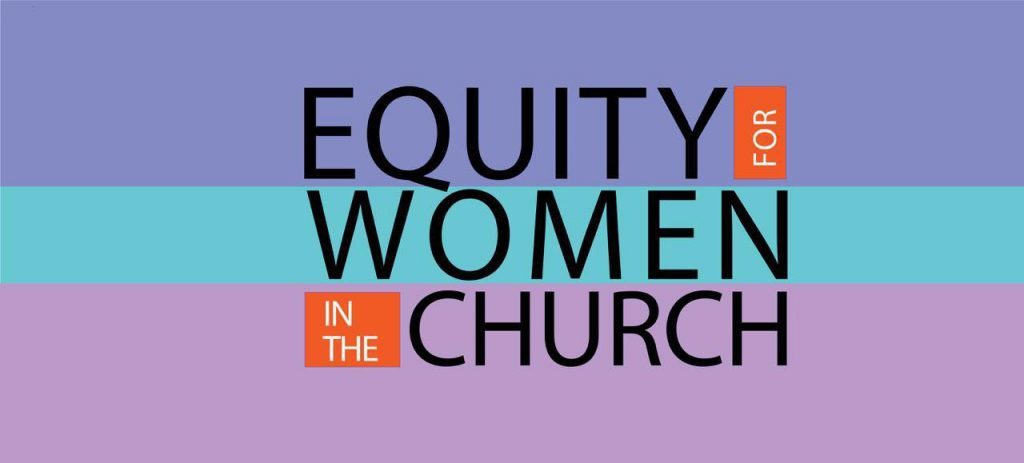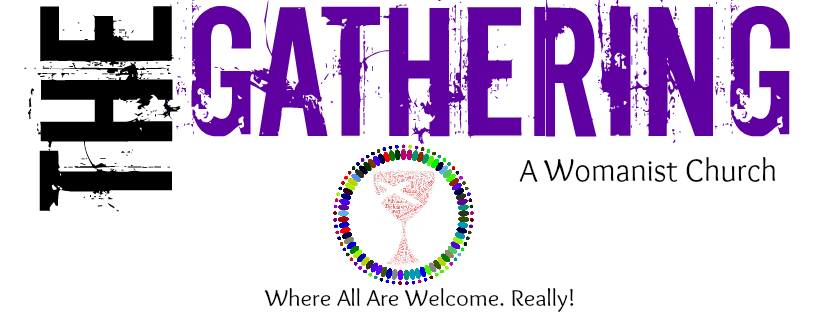Equity Live 2!

The second “Equity Live” features Rev. Dr. Alfie Wines, who initiated events on the theme “I Wish Someone Had Told Me: Women Gifted and Called to Ministry and the People Who Love Them.” Starting with these events and her blog article on the Equity for Women in the Church website, she developed a book titled I Wish Someone Had Told Me: Equity for Women in the Church, scheduled for publication this year. The book, with Dr. Wines as editor, will include chapters by clergywomen and clergymen, seminary and university professors, and family members of clergywomen.
In this second “Equity Live” Rev. Dr. Irie Lynne Session interviews Rev. Dr. Alfie Wines about her participation on the board of Equity for Women in the Church, about the Equity book project, about the difference between “equality” and “equity,” and other issues related to gender and racial justice. In this illuminating conversation Dr. Wines, a Hebrew Bible scholar and pastor, stresses the importance of responsible biblical interpretation to gender equity and justice. She illustrates by correcting misinterpretations of the first three chapters of Genesis and demonstrating that God’s original intent in creation was the equality of female and male.
Equity for Women in the Church partners with The Gathering, A Womanist Church in creating “Equity Live” with a mission of dismantling the interlocking injustices of sexism and racism that impede clergywomen. Equity for Women in the Church is an ecumenical movement to facilitate equal representation of clergywomen as pastors of multicultural churches in order to transform church and society. The Gathering’s social justice priorities are racial equity, dismantling PMS (patriarchy, misogyny, and sexism), and LGBTQ equality.
Although the number of women in theological education has increased to almost 40%, only about 10% of pastors of all Protestant churches are women. The percentage of women of color who find places to fulfill their call to pastor is much lower. In many denominations the percentage of women pastors of all ethnicities is lower than 1%. The average compensation of female pastors is much lower than that of male pastors, although clergywomen are more likely to have seminary degrees. A recent article in Christianity Today reports that the average salaries and benefits of female pastors are 27% lower than that of male pastors, although three-fourths of female pastors have seminary degrees and only a little over half of male pastors hold seminary degrees. “Equity Live” addresses these inequities, bringing change through the power of diverse voices advocating for women in ministry. “Equity Live” will contribute to gender and racial equity in church and society.
You’re invited to support Equity Live.
Many people would like to believe that we live in a post-sexist world because of the strides that have been made toward gender equity. Unfortunately, we know that gender inequity is still prevalent in every sector of our society, and often unashamedly in the church.
The #MeToo movement that raised widespread awareness of the prevalence of sexual abuse and violence empowered women to break their silence about the abuse they have suffered in churches. #ChurchToo stories are a powerful reminder that sexual abuse isn’t limited to Hollywood.
Male dominance in the leadership and language of churches forms the foundation for this abuse of women. When males are given God-like status, they are more likely to feel entitled to do whatever they like and females not to question their authority.
Despite advances that have been made over the past decades, there are still alarming numbers of people who have only experienced male pastors and religious leaders because of the erroneous teaching that the Bible mandates that women should not and cannot serve as church leaders. Females experience prejudice and discrimination in churches through the theology, language, and practices. Congregants are trained and ingrained in patriarchal understandings of the Bible, misogynist views of biblical passages, and distorted theologies that promote the relegation of women in the church and the larger society. Often congregants learn in Sunday school and sermons only about male biblical characters who are revered as God’s chosen ones, while females sit on the sidelines of the stories. They are taught about a male God who sent a male Savior who called male disciples. So in the minds of many, images of the clergy and leadership are exclusively male. For this reason, churches are frequently male-centered, male-dominated, and male-privileged in their practices even though females consistently make up the majority of church members. A recent Stanford University study demonstrates that images of God have impact beyond churches. The pervasive depiction of God as a white male leads people to believe that white males should be leaders in all sectors of society. “Equity Live” works toward gender equality in church and society.
Often because of the church’s culture, the vocation of ministry is not even a consideration for females. When they do express their calling to serve in leadership positions, many are told that they are only allowed to serve as missionaries, teachers, or children’s assistants but never over a man. Women and girls are informed that they can work in the kitchen, but not in ministry. It is permissible for them to dust the pulpit, but not stand in it. They are allowed to clean the robes, but never wear one. It’s fine for them to prepare and serve meals, but never behind the Communion table. “Equity Live” addresses these inequities in order to effect change on an individual and systemic level.
“Equity Live” conversations will include “Calling in the Key of She,” a program of Equity for Women in the Church, created by board member Rev. Andrea Clark, that provides churches with resources to develop and maintain “female-friendly” congregations who live out their beliefs that God equally loves, calls, values, affirms, and embraces the gifts of all females in the church. “Calling in the Key of She” guides congregations to work toward justice and equality for women and girls, and in so doing to transform everyone. The goal is to move beyond imagining to working to create equitable congregations in order to create a more just world.
Please join our ministry of transforming church and society. Your tax deductible donations go to the 501(c)3 nonprofit Equity for Women in the Church, Inc.

